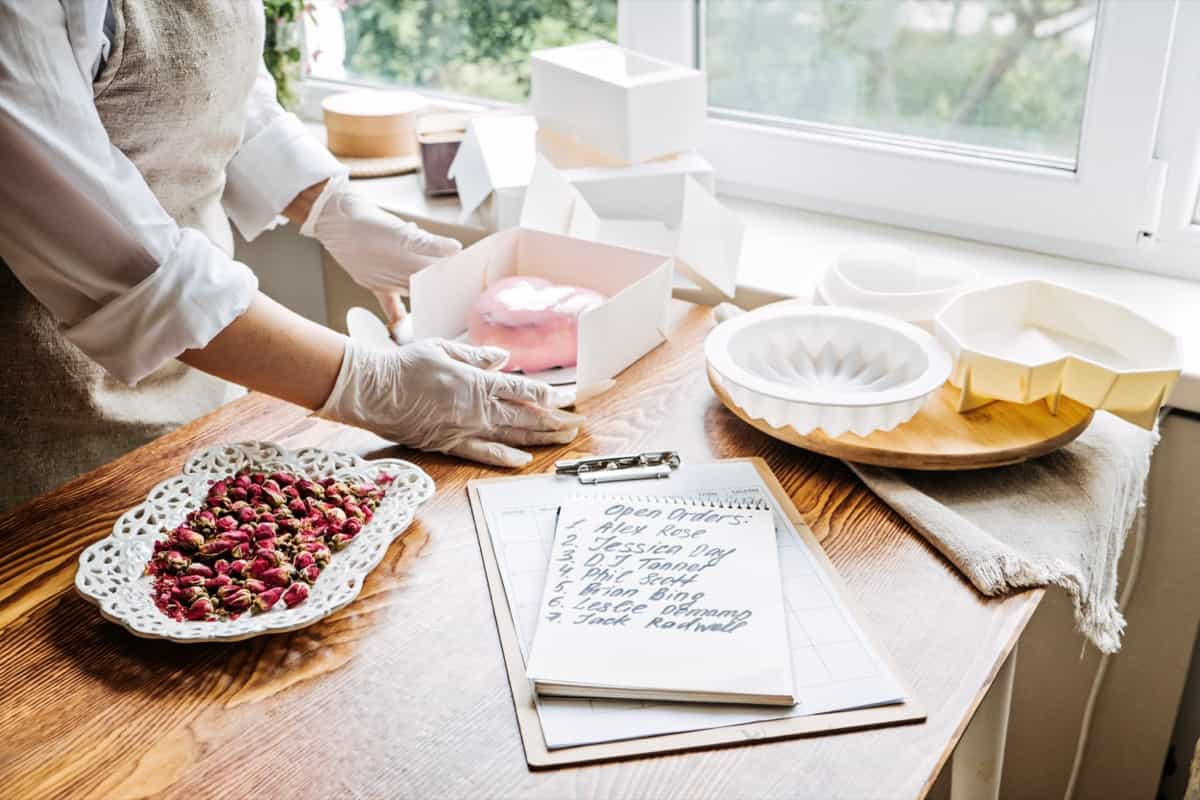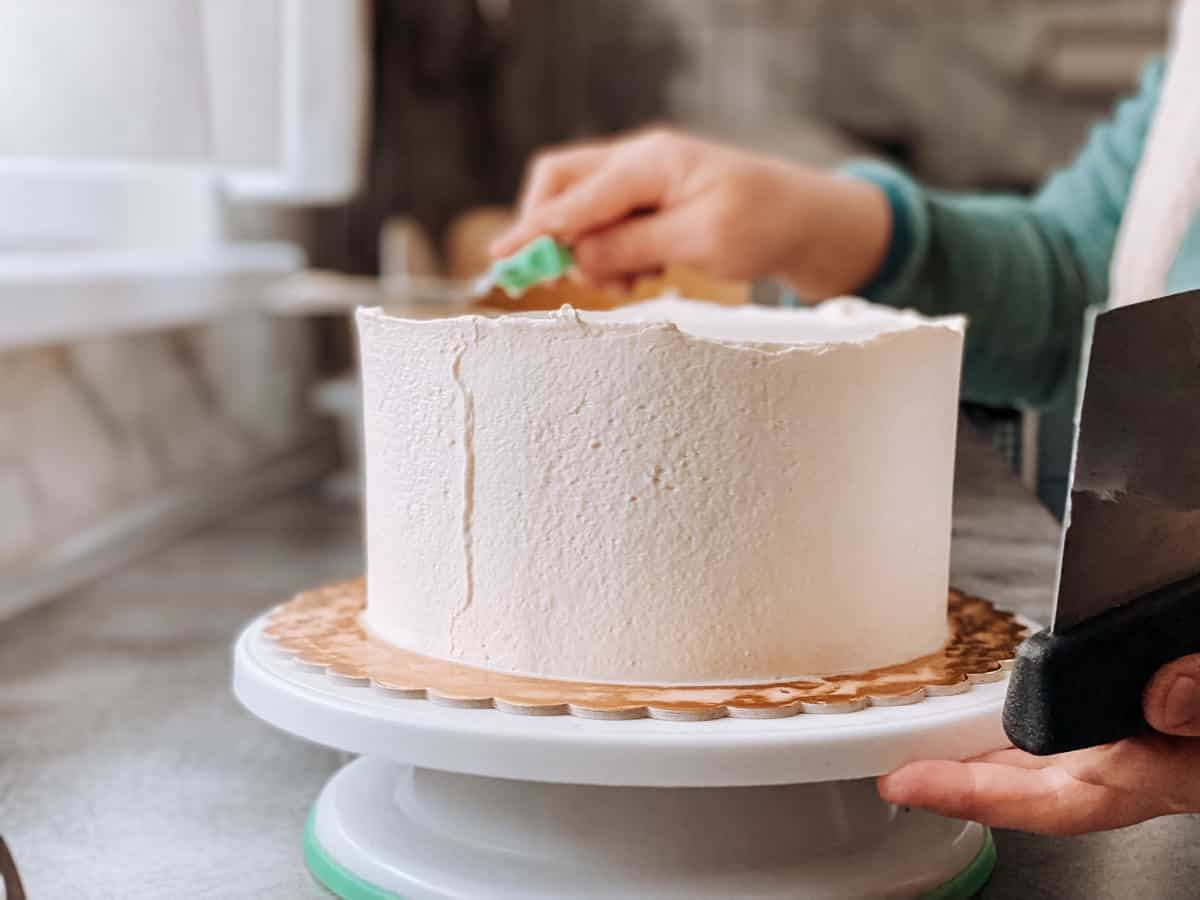Many bakers and pastry enthusiasts dream of starting their own cake business. The surge in the demand for customized cakes for events, birthdays, and anniversaries presents a ripe opportunity. So, how much does it cost to start a cake business? How much profit does a cake business make? Is running a cake business profitable? And how do you start your cake business plan? This guide will explore the cake-making business plan license cost to start and profits. Let’s dive in!

Cake Making Business Plan
Licenses and Permits for a Cake-Making Business
Embarking on a cake-making journey begins with ensuring you have the right licenses and permits. Firstly, you’ll need a food dealer’s permit, which allows you to sell food to the public. This requires a kitchen inspection to ensure that it meets health and safety standards. If you plan to run your business from home, check local zoning regulations to ensure home-based businesses are permitted. Remember to renew these licenses periodically, as required by local regulations. Also, consider obtaining liability insurance to protect against potential legal claims.
Start-Up Costs for a Cake Making Business
Several elements come into play to determine how much it costs to start a cake business. Firstly, equipment costs such as ovens, mixers, refrigerators, and display counters. Depending on capacity and features, a commercial-grade oven can range from $500 to $5,000. Depending on their size and brand, mixers might cost between $100 and $500.
Secondly, raw materials like flour, sugar, eggs, and flavorings need initial investment. Rent or lease for a storefront or commercial kitchen, branding, and marketing efforts also add to the initial costs. Based on scale and location, starting a cake business could range from $2,000 to $10,000 or more.
Profitable Cake-Making Business Ideas
Is running a cake business profitable? Yes, but you should think beyond the standard cakes to maximize earnings. Specialized niches like gluten-free, vegan, or organic cakes can target a specific audience and justify higher prices. Novelty cakes for events, 3D designs, and edible image cakes are trendy.
In case you missed it: Tuck Shop Business Plan: License, Cost to Start, and Profits

Offering classes or workshops can also diversify your income streams. Subscription models where customers receive monthly or weekly baked goods can ensure a steady income. By finding your unique selling proposition and targeting the right audience, you’ll set yourself up for success.
How to Price Your Cakes for Maximum Profit
Pricing is crucial in determining how much profit a cake business makes. It’s essential to consider both the direct costs (ingredients, electricity, etc.) and indirect costs (rent, advertising, etc.). Generally, a cake’s ingredients cost should represent about 20-30% of the final price.
For example, if the ingredients cost $10, you might sell the cake for $40, leading to a profit margin of 75%. However, remember to factor in labor, overhead costs, and market demand. Research local competitors to understand market prices and ensure you’re not underselling or overpricing. Regularly review and adjust prices as your business grows and costs evolve.
Marketing Strategies for a Cake-Making Business
In today’s digital age, online presence, including cake making, is paramount for any business. Start with a professional website showcasing your portfolio, customer reviews, and easy contact methods. Social media platforms like Instagram and Pinterest, known for visual content, are perfect for displaying your cake creations.
Regular posts, behind-the-scenes content, and collaborations with event planners or influencers can boost visibility. Consider offering promotions or loyalty programs for repeat customers. Offline strategies, like attending local fairs, hosting tasting events, or partnering with local cafes or restaurants, can also drive clientele and elevate brand recognition.
Managing Finances for a Cake-Making Business
Effective financial management is the backbone of any thriving business. Begin by setting up a separate business bank account to track income and expenses, ensuring personal and business finances don’t intertwine. Utilize accounting software or hire a professional to keep records organized and up-to-date.
Regularly review your finances to understand cash flow patterns and forecast future needs. This allows for timely intervention if profit margins shrink. Setting aside funds for unexpected costs and reinvesting in business growth is also essential. Lastly, always stay updated on tax obligations and ensure timely payments to avoid penalties.
In case you missed it: Bottled Water Business Plan: License, Cost to Start, and Profits

Hiring and Training Employees for a Cake-Making Business
You’ll likely need to hire additional hands as your cake business expands. Start by clearly defining roles: baking, decorating, customer service, or delivery. When hiring, prioritize candidates who share your passion for baking and have relevant experience. Once onboarded, offer comprehensive training, emphasizing brand values, quality standards, and customer service.
Regular feedback sessions and opportunities for skill enhancement can motivate employees and ensure they stay updated on industry trends. Remember, a well-trained and motivated team can significantly impact the quality of products and overall customer satisfaction.
Legal Considerations for a Cake-Making Business
Navigating the legal landscape is crucial for any business. Start by choosing the right business structure, such as a sole proprietorship, partnership, or LLC, which determines liability, tax obligations, and registration requirements. As mentioned earlier, obtaining the necessary licenses and permits is essential.
Moreover, protect your business by understanding local health and safety regulations, ensuring your kitchen and products meet set standards. Intellectual property considerations, like trademarking your business name or logo, can safeguard your brand. Lastly, always draft clear contracts for partnerships or collaborations to define expectations and responsibilities.
Growing a Successful Cake-Making Business
Growth is the ultimate testament to the success of a cake-making business. Continuously innovate by introducing new flavors, designs, or cake-related products. Conduct regular market research to stay attuned to customer preferences and industry trends. Customer feedback is invaluable; use it to refine your products and services.
Networking within the baking industry, attending workshops, or joining baking associations can provide insights and collaborative opportunities. Diversifying income streams, like conducting baking classes or venturing into cake-related merchandise, can also fuel growth. Above all, maintain a consistent focus on quality and customer experience, as these are the cornerstones of any successful business.
In case you missed it: Peanut Butter Making Business Plan: Equipment, Cost, and Profit

Conclusion
Establishing and growing a cake-making business is a multifaceted journey that requires a passion for baking and keen business acumen. From formulating effective marketing strategies and managing finances adeptly to hiring the right team and navigating legal considerations, each aspect plays a critical role in the business’s trajectory.
By being creative, committed, and always learning, you can make sure your business does well and shines in a tough market. After all, a successful cake business is about more than just delicious cakes; it’s about creating lasting customer memories while achieving entrepreneurial dreams.
- Handicraft Making at Home: A Small Profitable Business Idea
- Pet-Tech Startups: Innovations for Animal Lovers
- Tech Repair Services: Meeting the Demand for Gadget Maintenance
- Maximizing Rewards: Smart Credit Card Habits for Cashback and Points
- Ultimate Guide to Making Money from Goat Milk Business
- How to Start an Agricultural Value Added Product Business
- Value-Added Business Ideas for Greenhouse: The Best Ways to Make Profits with Greenhouse Farming
- How to Make Profits with Organic Country Chicken: Best Strategies for Beginners
- 10 Value-added Business Ideas for Millets: Low-investment and Highly Profitable